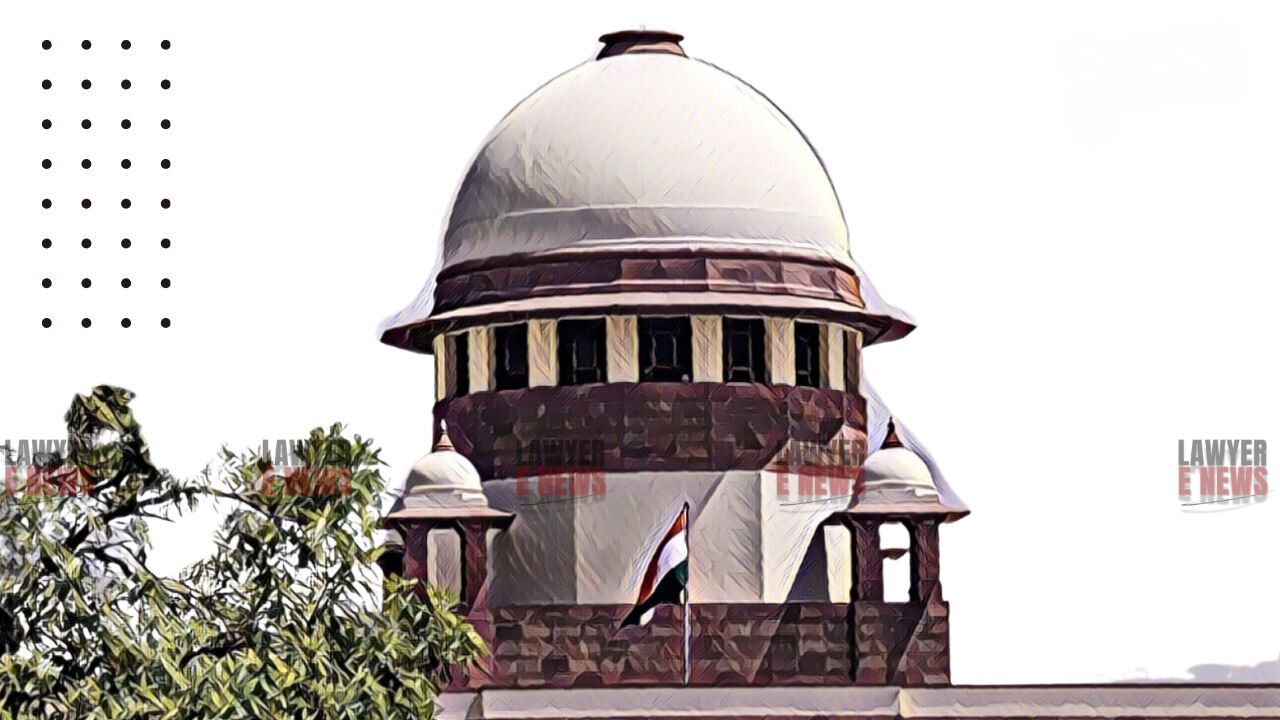-
by Admin
15 February 2026 5:35 AM



Supreme Court of India, in Lakha Singh v. Balwinder Singh & Anr., overturned a fraudulent land sale agreement that was allegedly executed using blank stamp papers. The Court set aside lower court judgments, declaring that the agreement was a fabrication orchestrated by the respondent. The ruling emphasizes the importance of scrutinizing suspicious documents in property disputes to prevent misuse of legal processes.
The dispute centered on an agreement dated May 7, 2007, between Lakha Singh (appellant) and Balwinder Singh (respondent), in which the appellant purportedly agreed to sell 30 kanals and 8 marlas of agricultural land for ₹16 lakh. The respondent sought specific performance of the agreement or a refund of the earnest money with damages. Lakha Singh, however, denied the agreement’s validity, arguing that the document was fraudulently created using blank stamp papers obtained under false pretenses.
The trial court and appellate courts awarded partial relief to the respondent, directing the return of ₹16 lakh plus interest, but denied specific performance of the contract.
The Supreme Court identified several key issues, including the credibility of the disputed agreement and whether it was created through fraudulent use of blank stamp papers.
Suspect Agreement: The Court found the agreement highly suspicious due to the lack of signatures on the first two pages and large blank spaces. These irregularities raised serious doubts about the document’s authenticity, leading the Court to conclude that the appellant's thumb impression had likely been taken on blank stamp papers.
“The agreement, with its blank spaces and missing signatures, appears to have been concocted fraudulently.”
No Evidence of Earnest Money: The respondent failed to produce any proof of the ₹16 lakh cash payment, such as tax records or bank withdrawals, further discrediting the validity of the agreement. Additionally, as a government employee, the respondent did not seek necessary departmental permissions to enter into the land transaction.
Justice Mehta, delivering the judgment, concluded that the entire case was based on fraudulent claims. The Supreme Court observed that the lower courts failed to adequately examine the suspicious nature of the agreement, resulting in erroneous judgments. The Court ruled that the respondent had concocted the entire transaction and dismissed the suit as a fabrication.
“The evidence clearly indicates that the disputed agreement was nothing more than a fraudulent attempt to misuse blank stamp papers."
The Court also noted the absence of proof of the payment or any valid reason for deferring the sale deed’s execution for 16 months, further undermining the respondent’s case.
The Supreme Court allowed the appeal, quashing the judgments of the trial, appellate, and High Court. The decision reaffirmed the importance of ensuring the authenticity of property sale agreements, particularly when there are indications of fraud or fabrication.
Date of Decision: September 27, 2024
Lakha Singh v. Balwinder Singh & Anr.
